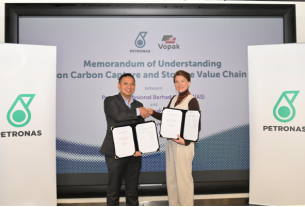United Kingdom – Harbour Energy and bp have agreed to collaborate on the Viking CCS transportation and storage project in the UK North Sea.
According to the terms of the arrangement, Harbour will continue to operate Viking CCS with a 60% interest, while bp will purchase a 40% non-operated part. The Viking CCS facility, which is near to the heavily industrialised Humber region, has the ability to achieve one-third of the UK Government’s 2030 goal of capturing and storing up to 30 million tonnes of CO2.
The declaration comes in response to the UK government’s recent choice to begin Track 2 of its CCS cluster sequencing procedure. A final investment decision is anticipated in 2024, pending the results of the Track 2 Cluster Sequencing Procedure. By 2030, the project might be fully operational and store up to 10 million tonnes of CO2 annually.
Transformative impact
By enabling up to £7 billion in investment across the entire CO2 capture, transport, and storage value chain over the following ten years, as well as over 10,000 jobs during construction and an estimated £4 billion in gross value add (GVA) for the Humber and its environs, the Viking project could have a transformative impact on the region.
Converting pipelines
The Lincolnshire Offshore Gas Gathering System (LOGGS) pipeline, which is expected to be converted as part of the project, already involves Harbour and bp. With their 300 million tonnes of CO2 storage capacity recently independently certified, the depleted Viking gas fields offer a one-of-a-kind, inexpensive opportunity to connect customers to them.
Shipping CO2
Also, Viking CCS has access to a future CO2 shipping facility at the Port of Immingham run by Associated British Ports, which could be used to ship CO2 from dispersed emitters abroad and in other parts of the UK for long-term storage inside the Viking fields.




